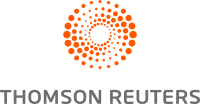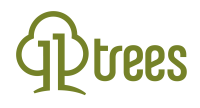2023 Western Regional Legal Writing Conference
August 25-26, 2023
University of San Francisco School of Law
2199 Fulton Street | San Francisco, California
Friday, August 25, 2023
| 2:30pm-3:00pm | Welcome & Registration (Law School Atrium) |
||
| 3:00pm-4:00pm | Panel 1: Contemporary Issues in LRW Teaching (Room 102) |
||
| Teresa Wall-Cyb & Rebecca Arons UC Law San Francisco |
Could Less Be More? Using Less-directive Feedback to Encourage More Independent Learning in LRW | This presentation will review opportunities for less-directive feedback in first-year legal writing courses to foster student judgment and professional development. | |
| Lybby Carroll University of Southern California Gould School of Law |
Chat GPT in the Legal Writing Classroom: Preparing Students for the Future of Lawyering | This presentation will discuss how generative AI is likely to be used by lawyers in practice and how legal writing professors can begin to prepare students for the changes AI will bring to practice. The presentation will share ideas for exercises that involve using Chat GPT as a tool as well as exercises for building core legal skills that cannot be replaced by AI. | |
| 4:00pm-5:30pm | Happy Hour (Law School Rotunda) |
||
Saturday, August 26, 2023
| 8:30am-9:00am | Continental Breakfast (Law School Rotunda) |
||||||
| 9:00am-9:55am | Panel 2: Law School Culture (Room 101) |
||||||
| Annie Reding & Kerry Kumabe University of California Berkeley School of Law |
The Problem of "Professionalism" | The presentation focuses on the challenges of teaching "professionalism" as part of a post-pandemic legal writing curriculum. | |||||
| Stephanie Der & Katherine Lyons Loyola Law School |
Teaching Tenacity to Legal Research and Writing Students | This session explores why the current generation of law students struggles with persistence and favors surface-level solutions over critical thinking. It then offers suggestions for teaching tenacity in the LRW classroom. | |||||
| 10:10am-11:05am | Panel 3A: Modernizing Writing Pedagogy (Room 101) |
10:10am-11:05am | Panel 3B: Teaching the Writing Process (Room 102) |
||||
| Jennifer Soderman Seattle University School of Law |
Why a hybrid Legal Writing course is the best model for reaching all students and preparing them for practice in today’s world | This presentation will discuss the benefits of a hybrid Legal Writing course. It will explain why a hybrid model is the best way to reach all students and best prepare them for practice in today's world. | Kathryn Boling Seattle University School of Law |
Promoting Reflection as a Professional Practice: Free-Writes and Recap Meetings | This presentation describes innovations for a program of reflection in the spring semester of a full-year legal writing course. By asking the students to engage in 8-10 "free-writes" on reflective prompts during class over the course of the semester and then asking them to lead a "recap meeting" with the professor at the end of the semester to describe their takeaways, students come away with a genuine understanding of the benefits of reflection, struggle in the learning process, and embracing mentorship. | ||
| Alyssa Dragnich Arizona State University Sandra Day O'Connor College of Law |
Modern Legal Writing | This presentation will discuss potentially outdated grammar rules such as never splitting an infinitive or ending a sentence with a preposition, as well as guidelines for inclusive writing, such as gender-neutral terms, ableist language, and the singular they. Attendees are encouraged to share their views on how they teach and grade these topics. | Sarah Eskridge St. Mary's University School of Law |
Building 1L Confidence by Focusing on Process Over Product | This presentation encourages participants to help students gain confidence in their own abilities by focusing on their pre-writing organizational process and comparing it with the feedback they receive on their work product. We will discuss the strengths and weaknesses of four different pre-writing tools and how each can help students improve their legal writing. | ||
| 11:15am-12:10pm | Panel 4A: Social Justice in Legal Writing Pedagogy (Room 101) |
11:15am-12:10pm | Panel 4B: Psychology in the Legal Writing Classroom (Room 102) |
||||
| Susan McMahon Arizona State University Sandra Day O'Connor College of Law |
What We Teach When We Teach Legal Analysis | Legal writing courses do an outstanding job of introducing students to the traditional tools of legal analysis, such as rule-based reasoning and analogical reasoning. But these tools can implicitly give students the impression that law is fixed and neutral, not the flexible and value-laden system it actually is. This presentation encourages legal writing professors to surround their legal analysis pedagogy with strategies intended to disrupt students’ sense that law is “usually OK and just” and give them tools to create legal change. | Joshua Aaron Jones California Western School of Law |
Positive Psychology Pedagogy for the Legal Skills Classroom | Incorporating positive psychology interventions into the first-year legal research and writing curriculum can improve student well-being, class performance, and eventually, bar exam success. This presentation offers an overview of positive psychology and pedagogy examples. | ||
| Zoha Khan Western State College of Law |
Teaching Law Students About the Societal Impacts of the Law – Incorporating Upper-Level Writing Courses to Meet ABA Standard 303(c) | Incorporating upper-level writing courses to meet ABA Standard 303(c) allows students to further develop their legal writing, research, and analysis skills while exploring important topics grounded in a comprehensive understanding of bias, cross-cultural competency, and racism. | Kim D. Ricardo University of Illinois Chicago School of Law |
Down with Toxic Positivity: Wellness Culture through a Community Care Lens | This presentation will compare models of self-care with communities of care, arguing that the latter provides a more sustainable outlook for our students and for ourselves. It will include examples of different community care practices that you can bring back to your classroom. | ||
| 12:10pm-1:40pm | Lunch (Law Library Terrace Room) |
||||||
| 1:40pm-2:35pm | Panel 5A: New Tools for the Legal Writing Classroom (Room 101) |
1:40pm-2:35pm | Panel 5B: Teaching the Art of Rule Construction (Room 102) |
||||
| Benjamin Halasz University of Washington School of Law
|
Playing with Purpose: Tips for How to Create New In-Class Games
|
When you challenge students with a well-designed game, you make class more fun while also sneakily reinforcing your key concepts. In this presentation, I explore principles for creating new games that lie outside of the vocab-quiz comfort zone. | Julie Schwartz Washington & Lee School of Law |
Using Templates To Teach Rule Explanation and Rule Application | Students learning to write legal analysis may understand the analysis but have trouble with the execution of writing it. Using "templates" for Rule Explanation and Rule Application paragraphs helps the students translate their thoughts to a clear, well-structured legal analysis. | ||
| Marc Fong Thomson Reuters |
The Case for AI in the Classroom | Whether we like it or not, AI is here. While objections to its use in the classroom are valid, there are very good reasons to embrace (and use) AI. In this brief conversation we'll talk about how AI can be a good thing and help students and faculty in the classroom. | Alissa Bauer Brooklyn Law School |
One Tort, Four Elements, Four (and a Half) IRACs, Five Lessons About Rule Support Cases | This presentation explores the significance of rule support cases, sometimes called case illustrations, rule explanations, or rule proof, in the IRAC structure. It uses a negligent infliction of emotional distress fact pattern to demonstrate five important lessons regarding how rule support cases help students set up effective and targeted application. | ||
| 2:45pm-3:40pm | Panel 6: Using Case Law to Teach Social Justice (Room 101) |
||||||
| Lorraine K. Bannai & Laurel Currie Oates Seattle University School of Law |
Questioning Authority: Using Korematsu v. United States to Teach Key Skills and Concepts in Legal Writing | This presentation focuses on using social justice issues to illustrate key skills and concepts in the legal writing classroom. Specifically, we will share teaching modules showing how the infamous case of Korematsu v. United States, which upheld the mass removal of Japanese Americans from the West Coast, can be used to help students (1) assess whether an authority is still good law and avoid overreliance on vendor assessment of subsequent history; (2) question bias in naming cases involving litigants with Asian-sounding names; and (3) recognize harmful bias in writing. | |||||
| David Ziff University of Washington School of Law |
Slavery, Citation, and The Bluebook | The current edition of The Bluebook includes Rule 10.7.1(d), which requires a parenthetical notation when citing an opinion that involves an enslaved person. Should courts and lawyers adopt this rule and, if so, how might it affect the development of the law? | |||||
| 3:50pm-5:00pm | Panel 7: Generative AI in Legal Writing Pedagogy & Closing (Room 101) |
||||||
| Cristina Knolton Southwestern Law School |
Integrating Generative AI in the Legal Writing Classroom: A Balanced Approach | The presentation will focus on a balanced approach to incorporating Generative AI into the legal writing classroom. The presentation will introduce an Objective Memorandum Assignment that combines independent critical thinking with AI integration, along with a unique "Chat-GPT proof" assessment. | |||||
| Rebekah Hanley University of Oregon School of Law |
Generative AI, Law School Teaching, & the Practice of Law | The generative artificial intelligence technology unveiled in late 2022—a tool that students and others can now use to help them research, synthesize, analyze, compose, and revise—is a powerful force that stands to change fundamental aspects of the work of legal writers and legal writing professors. Join your colleagues in conversation about how this technology invites us to adjust longstanding policies and practices to advance the interests of our students, writing programs, schools, and the legal profession. | |||||
| Adam Abelkop University of San Francisco School of Law |
Closing remarks | ||||||
Registration for the conference is free, but we ask that all attendees (including presenters) register using the link below to help us prepare appropriately for catering, parking, and on-site accessibility. Note that all presentations and events will be in-person; remote participation will not be supported for the conference. Please register as early as practicable, but no later than Sunday, August 13, 2023.
The University of San Francisco School of Law is located in Kendrick Hall, near San Francisco’s historic Golden Gate Park.
-
If you are driving, there are two parking deck levels below Kendrick, which you can enter here along Shrader Street. Parking will be free both days.

-
If you are taking a rideshare service or taxi, you can use the address 2199 Fulton St, San Francisco, CA 94117
On Friday at 2:30pm and Saturday at 8:30am, registration will open in the law school atrium, which is immediately inside the entrance to Kendrick Hall located between Kendrick and Zief. The doors at the front of Kendrick Hall along Fulton St will be locked and signage will lead you to the courtyard between the buildings. These doors into Kendrick Hall from the courtyard between Kendrick and Zief will be unlocked Friday 2:00-3:30pm and Saturday 8:00-9:30am.
If your rideshare or taxi drops you in front of Kendrick, please make your way left/downhill along Fulton St towards the middle of the two buildings, and you can enter from the courtyard between the two buildings. If you are parking, there is a stairwell that will lead you to the courtyard between the two buildings. There is also an elevator into Kendrick Hall from both parking deck levels that will be unlocked Friday 2:00-3:30pm and Saturday 8:00-9:30am.
If you plan to arrive outside of those times or need any other accommodation, please email us at wrlwc2023@usfca.edu so we can help you into the building. If you have any other question or request please email that address – our whole team will be monitoring it throughout the conference. Please feel free to approach as well. We can’t wait to see you
There is no official hotel for this conference.
Listed below are some hotel options. For those having an official relationship with USF, we've provided a discount code. The others are suggestions based on proximity to the University and/or past use for other events:
- Handlery Union Square Hotel (USF FLEX RATE)
- Holiday Inn San Francisco - Golden Gateway (Corporate ID: 100229955)
- Hotel Kabuki
- Laurel Inn
- Stanford Court Hotel (Promo Code: LOCUSF)
Questions? Email wrlwc2023@usfca.edu or any member of the conference planning committee (below)

Adam Abelkop
aabelkop@usfca.edu

Julia Dunbar
jtdunbar@usfca.edu

Edith Ho
hoe@usfca.edu

Megan Roberts Hutchinson
mrhutchinson@usfca.edu

Eugene Kim
eykim@usfca.edu

Nicole Phillips
nlphillips2@usfca.edu


